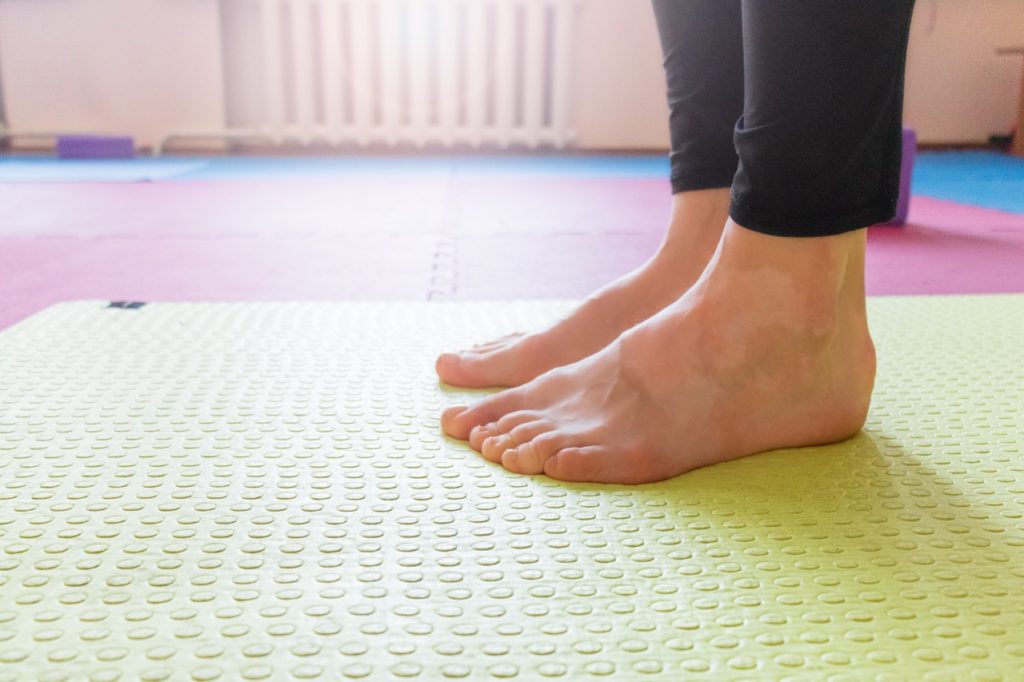Long-term complications of untreated flat feet
The human foot is a remarkably intricate structure we often take for granted. Each foot contains 26 bones, 33 joints, and over 100 ligaments and tendons. This complex system, supported by an intricate network of muscles, forms the unique shape of the foot, including the essential arch structure that provides stability and support.
Over time, various factors can cause the arches to weaken or collapse, leading to a condition known as flat feet, or pronation. Flat feet place additional strain on the feet, increasing the risk of painful conditions such as plantar fasciitis, characterised by chronic heel pain. Other potential issues include arch pain, bunion pressure, Achilles tendonitis, and ankle discomfort.
Flat feet can also elevate the risk of developing arthritis in the feet and ankles, especially as the condition progresses. The uneven weight distribution caused by flat feet often results in repetitive strain injuries, putting unnecessary stress on the body over time.
Early detection of flat feet is critical in reducing the likelihood of more serious complications and ensuring long-term foot health. Recognising the signs early can help mitigate discomfort and prevent future problems.

Increased risk of injuries
The alignment and shape of the feet serve as the foundation for the entire body’s structure. Just as a misaligned foundation can destabilise a building, improper foot posture and inadequate arch support can negatively impact the body’s overall alignment.
When the feet are misaligned, it can lead to painful conditions such as shin splints, stress fractures, and tendonitis. Issues like knee, hip, and back pain are often linked to poor foot posture and arch positioning. For individuals with flat feet, the lack of proper arch support can cause overuse of certain muscles and tendons, making them more susceptible to tendonitis. Similarly, flat feet or pronation are commonly associated with heel pain or plantar fasciitis, as the arch-supporting musculature struggles to cope with the strain, resulting in discomfort.
Left unaddressed, flat feet can also compromise balance and stability, increasing the risk of falls—particularly in older adults. This not only affects mobility but can also significantly impact independence and quality of life.
Impact on mobility and daily activities
Flat feet, if left unaddressed, can significantly impact mobility and lead to gait disorders. The altered mechanics of walking caused by flat feet not only result in foot pain but can also extend to the knees, hips, and lower back. This misalignment places additional strain on the joints, increasing the risk of chronic pain and injuries in the lower body.
High-impact activities or sports can exacerbate discomfort, with pain radiating to the ankles, knees, and hips. The improper posture associated with flat feet contributes to inefficient and often painful walking, further disrupting daily activities. Balance and coordination may also be compromised, making simple tasks like standing or walking more challenging and less efficient.
Over time, the biomechanical imbalances caused by flat feet can lead to fatigue during prolonged periods of standing or walking. These limitations in functional movement can hinder both daily performance and overall quality of life, underscoring the importance of addressing flat feet to maintain proper mobility and joint health.
Symptoms indicating the need for treatment
Recognising the symptoms of flat feet is essential to preventing potential complications. Common signs that may require treatment include pain in the feet, ankles, knees, or hips, as well as stiffness, weakness, or persistent discomfort in the feet.
When flat feet begin to interfere with daily activities, seeking treatment becomes especially important. Ignoring these symptoms can lead to chronic pain and long-term mobility issues. Consulting an experienced podiatrist, such as Jonathan Kirk here at Waverley Clinic, is a crucial step for those experiencing ongoing discomfort or difficulty with mobility.
Flat foot diagnosis and treatment at Waverley Clinic
At Waverley Clinic, we offer specialised care for flat feet and associated conditions. Our knowledgeable podiatrist can accurately diagnose flat feet by conducting a thorough physical examination, reviewing medical history, and ordering imaging tests if necessary. Once diagnosed, our experienced podiatrist will develop an individualised treatment plan to address the specific needs of each patient.
What is a biomechanical assessment podiatrist?
If you’re dealing with flat feet and ongoing foot pain, a biomechanical assessment at Waverley Clinic could help uncover the underlying issues. Our expert biomechanical podiatrist provides a thorough evaluation to identify the root cause of discomfort in your feet or lower limbs.
This comprehensive assessment goes beyond just examining your feet—it evaluates your pelvis, legs, and knees, analysing how these areas work together. By understanding these connections, we can pinpoint the source of your pain and help you move toward effective treatment.
What are the benefits of finding a biomechanical podiatrist near me?
Are you struggling with pain in your feet, lower limbs, or back? It could be linked to a problem with your foot posture. The first step toward relief is consulting a local podiatrist with expertise in foot biomechanics.
During a comprehensive biomechanical assessment with one of our highly qualified podiatrists, we’ll uncover the root cause of your pain or injury and explore the most effective treatment options to help you recover and feel your best.
What can I expect from a biomechanical assessment?
At Waverley Clinic in Farnham, our biomechanical assessment offers a comprehensive consultation that includes advanced digital and physical gait analysis using GaitScan technology. This cutting-edge system evaluates how your foot functions throughout each step, from heel strike to push-off, identifying areas of high pressure and pain with remarkable precision through a 3D scan.
Based on these insights, we create a personalised treatment plan tailored to your needs. This plan may include prescription orthotic insoles, targeted stretching exercises, and expert advice on maintaining long-term foot health. Our use of Digital GaitScan technology ensures precise diagnostics and the creation of custom orthotics designed for unmatched comfort and flexibility, whether you’re walking or running. Say goodbye to outdated, messy plaster casts—our 3D imaging delivers snug, perfectly fitted insoles that adapt to your movement.
Ready to take the first step toward healthier feet? Book your appointment online here or call Waverley Clinic at 01252 716611.
We offer a seven-day, 24-hour telephone booking service for your convenience.
Treatment options
Effective management of flat feet starts with conservative treatment options designed to enhance foot function and alleviate discomfort. Orthotic inserts play a crucial role by supporting the arch and evenly distributing weight across the foot. Our experienced podiatrist, Jonathan Kirk, conducts thorough assessments of foot mechanics and recommends orthotic insoles tailored to support flat feet and address related pain.
Customised treatment plans can include bespoke orthotics to meet the unique needs of each individual. Supportive footwear is equally important—shoes should be stiff, well-fitted, and securely fastened to promote proper foot posture. Our team provides professional guidance on selecting the right footwear for optimal support.
Additionally, targeted stretching exercises for the plantar fascia, calves, and hamstrings can effectively reduce foot pain. These exercises, customised to an individual’s specific needs, help strengthen key muscle groups, improve stability, and enhance overall foot function.

Importance of early diagnosis and intervention
Adults should monitor changes in their arches to ensure early detection and effective pain management. Regular foot health checks with a podiatrist can identify potential issues, such as pronation or painful flat feet, before they worsen.
Early diagnosis allows for timely intervention, helping to manage symptoms and improve overall quality of life. Recognising flat foot conditions early also enables the creation of personalised care plans tailored to each patient’s needs.
Don’t let foot pain hold you back: Book an appointment with Waverley Clinic today!
Seeing a podiatrist is crucial for diagnosing and managing flat feet pain. These foot specialists possess the expertise to offer effective treatments and personalised care. If you’re dealing with severe discomfort or a sudden collapse of your arches, don’t delay seeking professional help. Regular check-ups with a podiatrist can provide valuable guidance on proper care and interventions, ensuring you manage flat feet effectively and maintain optimal foot health.
Why wait any longer? Don’t let foot pain stand in your way. Schedule an appointment with Jonathan, our highly skilled podiatrist at Waverley Clinic, today. Book online or give us a call at 01252 716611.
Our phone booking service is available 24/7 to assist you anytime.
Take the first step towards pain-free living—your feet will thank you!

